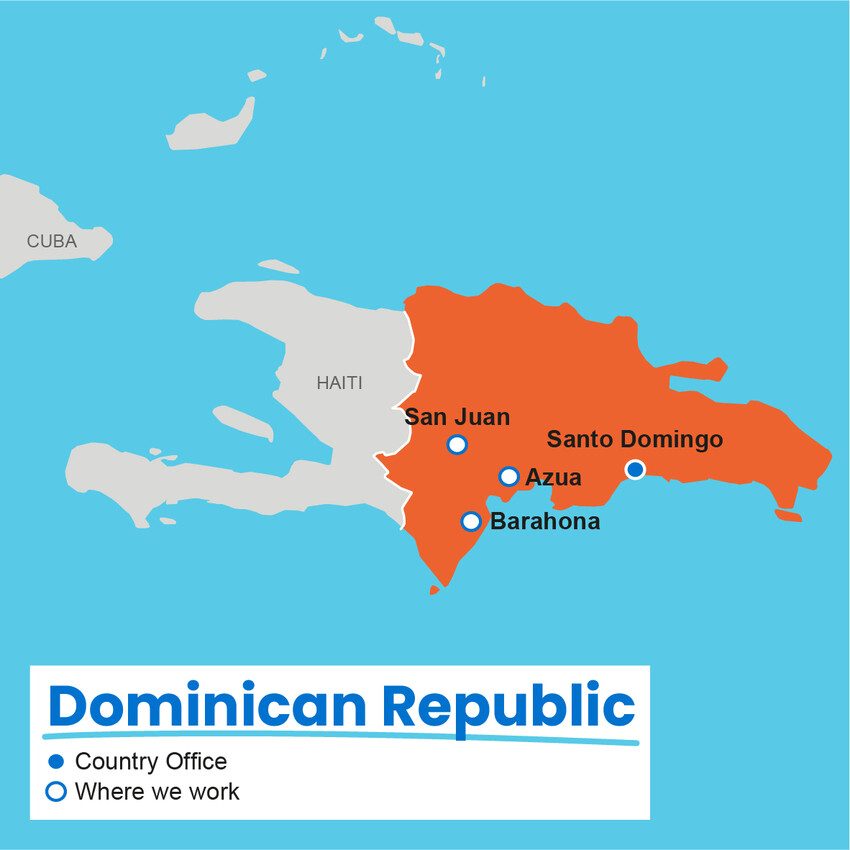How we got child marriage banned in Dominican Republic
We knew that girls were dropping out of school and becoming pregnant far too young but society didn't see child marriage as an issue. Here's how Plan Interna…
Plan International is an independent development and humanitarian organisation that advances children’s rights and equality for girls. We believe in the power and potential of every child but know this is often suppressed by poverty, violence, exclusion and discrimination. And it is girls who are most affected.
Plan International started working in the Dominican Republic in 1987.Today we work in more than 120 communities in the following provinces: Azua, Barahona, Pedernales, San Juan de la Maguana, Independence, Elías Piña, La Altagracia, San Pedro de Macorís, Santiago and San Cristóbal.
We have a clear ambition that no girl should marry or become pregnant before the age of 18.
C/Guarocuya 117, Plaza Roaldi, 6TO,
Piso Ens. El Million II,
Santo Domingo
planrdcomunicaciones@plan-international.org
Follow us:
